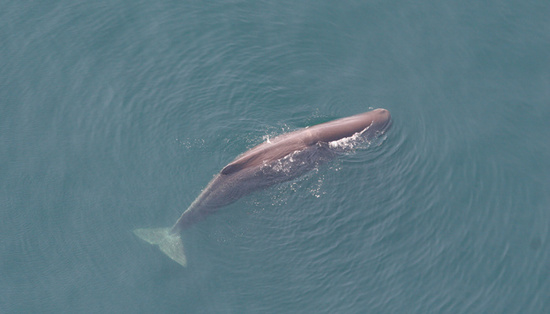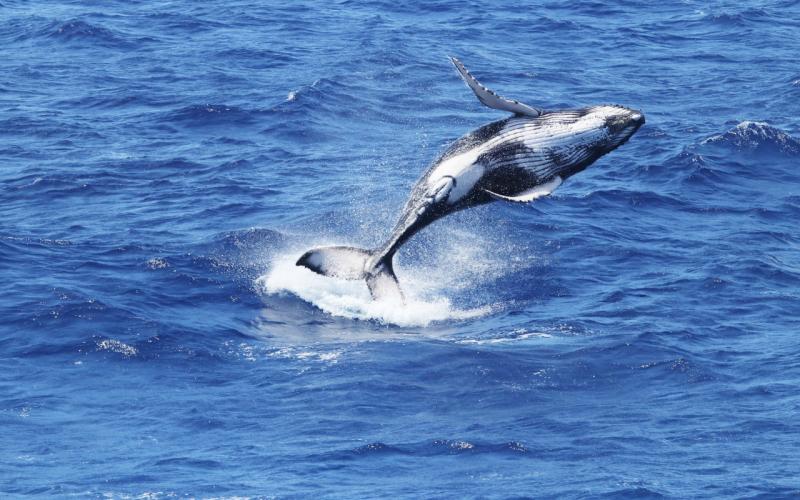Celebrate Whale Week with ten things you might not know about whales.
1. Complex Singers
Male humpback whales found in U.S. waters sing complex songs in winter breeding areas in waters near Hawaii, in the Caribbean, and elsewhere that can last up to 20 minutes and be heard miles away.
2. Massive Marine Mammals
The blue whale is the largest animal that ever lived and can grow to 90 or more feet and weigh as much as 24 elephants! That’s more than 330,000 pounds (150,000 kg).

3. Long-living Creatures
Some species of whales are among the longest lived mammals. Scientists estimate bowhead whales (a baleen whale found in the Arctic) can live for more than 200 years, and killer whales (a toothed whale found in various habitats worldwide) can live for more than 100 years.

4. Some Whales are Very Social
Killer whales are highly social and often travel in groups that are matrifocal—a family unit focused or centered on the mother. Learn more about the Southern Resident killer whale, a NOAA Fisheries Species in the Spotlight.

5. "Canaries of the Sea"
Beluga whales have flexible necks, allowing them to move their heads. Their complex communication repertoire of whistles, clicks, and chirps has prompted the nickname “canaries of the sea.” Learn more about the Cook Inlet beluga whale, a NOAA Fisheries Species in the Spotlight.

6. Long Annual Migrations
Gray whales make one of the longest annual migrations of any mammal: they travel about 10,000 miles (16,000 km) round trip!

7. Smallest Baleen Whale in North American Waters
The minke whale is the smallest baleen whale in North American waters.

8. Gatherers of Small Organisms
North Atlantic right whales gather small organisms near the water surface, straining seawater with their long baleen plates. The whales’ surface feeding behavior and buoyancy make them vulnerable to collisions.

9. Oil in Sperm Whale Heads
Sperm whales were almost driven to extinction by commercial whalers who sought the whales’ blubber and the unique oil derived from the “spermaceti organ” found in their massive heads. The spermaceti organ is a key part of their echolocation system.

10. Deepest Dive
In 2014, a Cuvier’s beaked whale made the deepest and longest dive ever recorded for a cetacean when it reached a depth of 1.9 miles (2,992 m) and stayed submerged for more than 2 hours.





